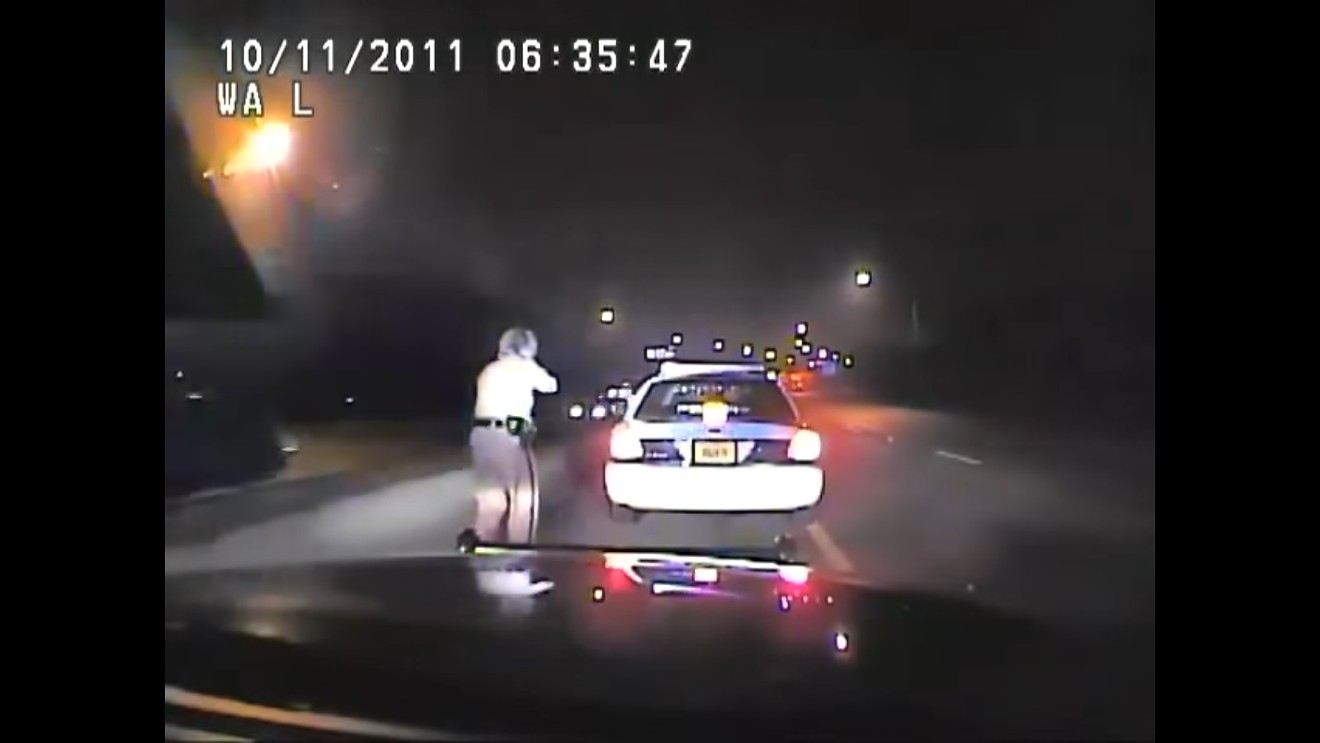Cops are supposed to give other cops "professional courtesy" when they're out in public. That means they're not supposed to arrest or ticket one another when they're caught breaking the law. But after Donna "Jane" Watts, a Florida Highway Patrol officer, caught Fausto Lopez, a City of Miami cop, rocketing up the highway at 120 mph, she pulled him over — at gunpoint.
That's when the harassment began, Watts said in a lawsuit filed later. She said people prank-ordered pizzas to her home and smeared human feces on her car, and 88 cops from 25 departments stalked her and obtained her personal information through the state's Driver and Vehicle Information Database (DAVID).
Despite the fact that the City of Miami's internal affairs department disciplined the Miami cops involved (and found they had violated departmental policy), Florida's Eleventh Circuit Court of Appeal ruled Wednesday that five of the cops who admittedly accessed Watts' data didn't break the law and did not deserve legal punishment.
A lawyer for Miami's Fraternal Order of Police, Robert Buschel, did not respond to New Times' request for comment.
In 2012, Watts sued the 88 cops whom she said improperly accessed her information to stalk her. According to the Sun Sentinel, 82 of those officers chose to settle with Watts.
But the five from Miami fought. Though Watts initially won her suit,
In a legal opinion that splits hairs so thin they might be two-dimensional, the judges write that, although the cops clearly and openly accessed her information, including her driver's license photo, the officers did not do something that was "clearly" prohibited.
The Miami cops had argued they looked up her information to keep themselves
"Because Watts failed to show that the officers accessed her information for a purpose that was clearly not permitted by the [Driver's Privacy Protection Act], we need not address whether their actual purpose was permitted under the DPPA," the judges wrote. "Accordingly, we conclude that the district court erred in denying the Defendants qualified immunity. We reverse and remand to the district court for entry of judgment in favor of the Defendants."
Among officers, the DAVID system is routinely abused: A 2016 Associated Press investigation revealed that hundreds of cops had been fired or disciplined between 2013 and 2015 for improperly accessing confidential databases such as DAVID. A 2014 NBC 6 investigation caught officers in West Palm Beach using DAVID to stalk their exes, for example.
(Watts' case also sparked a Sun Sentinel investigation into Florida cops' dangerous speeding habits. That series won the paper a Pulitzer Prize.)
Astoundingly, the judges' opinion this week mentions the fact that the Miami cops in Watts' case knew they had broken the rules and were reprimanded for it:
As part of the investigation, the Defendants were interviewed. They all claimed that they performed a DAVID query as part of their official duties. The officers said that because Watts had pulled her weapon on a police officer, they wanted to be able to identify her for their own safety, and so needed to see her DAVID picture. The records show, however, that the officers scrolled through multiple pages of information after seeing the Plaintiff’s picture. At the end of the investigation, each of the officers was cited for performing an unauthorized search of DAVID which was not for law enforcement or criminal justice purposes, and was officially reprimanded (although no punishment issued).But that fact was not enough to convince three South Florida judges that the cops deserved punishment. The officers claimed they were protected by a "qualified immunity," a standard of heightened legal protection offered to public officials. The judges then cited a case that defined said immunity as offering "complete protection for government officials sued in their individual capacities as long as their conduct violates no clearly established statutory or constitutional rights of which a reasonable person would
have known."
The judges were not, apparently, swayed by the fact that the City of Miami's internal affairs unit told the cops they broke the rules. Frighteningly, the judges ruled that accessing confidential driver information for a cop's personal use could count as a matter of "public safety" under the law:
It is not obviously clear that an officer obtaining the information for his own use is not within the permissible use of § 2721(b)(1), “use by any government agency, including any court or law enforcement agency, in carrying out its functions,” or of § 2721(b)(14), “any other use specifically authorized under the law of the State that holds the record, if such use is related to... public safety.”To which Javier Ortiz, the City of Miami's Trump-loving Fraternal Order of Police head, danced a celebratory jig online.
"It pays to be a Miami FOP member!!!" Ortiz exclaimed online.FOP WINS and beats FHP Donna Watts Lawsuit. All Miami cops found NOT GUILTY. Congrats to FOP Attorney Robert Buschel. #FOP @MiamiPD pic.twitter.com/n77jHijxtx
— Miami FOP 20 (@MiamiFOP20) February 8, 2017
Here's the full order:












